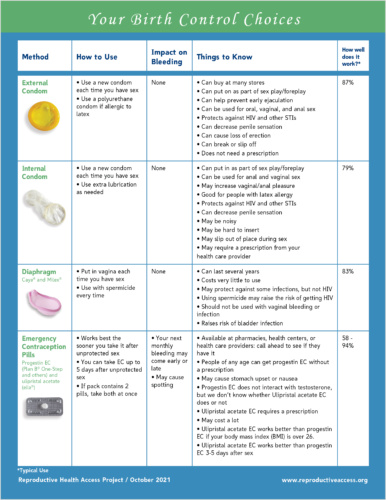Choosing Between The US And Germany: An Expat's Personal Story

Table of Contents
Cost of Living Comparison: US vs. Germany
The financial aspect significantly impacted my "choosing between the US and Germany" decision. Let's break down the cost of living in both countries:
Housing: Rent Prices and Property Costs
Housing costs vary dramatically between the US and Germany, particularly depending on the city.
- New York City: Expect to pay upwards of $3,000 per month for a modest apartment in a decent neighborhood. Rent prices are notoriously high. Property costs are equally exorbitant.
- Munich: While Munich is also an expensive city, you might find comparable apartments for around €1,500-€2,500 per month, though this greatly depends on location and size. Housing affordability in Munich, while still challenging, is relatively better than in NYC.
- Berlin: Offers a more affordable housing market compared to Munich, with rental prices typically lower.
These examples illustrate the significant difference in housing affordability depending on location and choice of country. Consider your desired lifestyle and budget when considering rent prices and property costs.
Healthcare: Healthcare Costs, Health Insurance, and Medical Expenses
Healthcare is a critical factor when choosing between the US and Germany.
- US: The US system is largely private, resulting in high healthcare costs and complex health insurance plans. Medical expenses can quickly accumulate, even with insurance.
- Germany: Germany boasts a robust public healthcare system (Gesundheitswesen), providing comprehensive coverage at a significantly lower cost than the US system. Private supplemental insurance is available for additional benefits.
The accessibility and affordability of healthcare are vastly different in these two countries, a crucial consideration for your overall well-being and budget.
Everyday Expenses: Cost of Living Index, Grocery Prices, and Transportation Costs
Daily living expenses contribute to the overall cost of living.
- Groceries: Grocery prices in Germany are generally lower than in the US, particularly for everyday items.
- Transportation: Germany's excellent public transportation system makes car ownership less necessary in many cities, reducing transportation costs considerably compared to relying on cars in the US.
- Entertainment: Entertainment costs can vary, but generally speaking, cultural events and activities might be more affordable in Germany.
Cultural Differences and Integration
Cultural adaptation plays a crucial role when making the big move.
Language Barriers: Language Acquisition and Cultural Integration
- US: The prevalence of English makes integration easier for English speakers.
- Germany: Learning German is essential for deeper cultural immersion and a smoother integration. While English is spoken in many urban areas, learning German opens doors to better job opportunities and a richer cultural experience. Resources for language learning are widely available, from online courses to language exchange partners.
Social Customs and Etiquette: Cultural Adaptation and Social Norms
- Directness: Americans tend to be more direct in communication than Germans, who often favor a more subtle and indirect approach.
- Punctuality: Punctuality is highly valued in both cultures, although the degree of strictness might differ slightly.
- Work-Life Balance: Germany generally places a stronger emphasis on work-life balance than the US.
Community and Social Networks: Making Friends Abroad and Social Support Networks
Building a social network is vital for settling into a new environment.
- Expat Communities: Both countries have thriving expat communities, offering support and opportunities to connect with fellow expats.
- Social Support: The ease of making friends varies based on personality and proactive efforts.
Career Opportunities and Job Market
Career prospects are a major driver for many expats.
Job Search Strategies: Job Market Trends and Employment Opportunities
- US: The US job market is vast and diverse, offering numerous opportunities across various sectors. Competition, however, can be intense.
- Germany: Germany’s job market is robust, particularly in engineering, technology, and automotive sectors. Language proficiency is often a prerequisite for many roles. Visa requirements must be thoroughly researched.
Salary and Benefits: Salary Comparison, Employee Benefits, and Work Permits
- Salaries: Salaries can vary significantly between the US and Germany, depending on the industry and experience level. Research salary expectations for your field thoroughly.
- Benefits: Germany often provides more comprehensive employee benefits compared to the US.
Professional Networking: Professional Networking, LinkedIn, and Career Fairs
Networking strategies remain crucial in both countries for career advancement.
Lifestyle and Quality of Life
The lifestyle and quality of life are crucial aspects to consider.
Access to Nature and Recreation: Outdoor Recreation, Quality of Life, and Nature and Environment
- US: Offers diverse landscapes, from national parks to bustling cityscapes.
- Germany: Boasts stunning natural beauty, from the Alps to the Baltic coast, offering abundant opportunities for outdoor recreation.
Public Transportation: Public Transportation, Commute Times, Accessibility, and Environmental Impact
- Germany: Germany’s efficient and extensive public transportation system often makes commuting easier and more environmentally friendly compared to car-dependent US cities.
Work-Life Balance: Work-Life Balance, Stress Levels, Mental Health, and Well-being
The perceived work-life balance differs between the two countries; Germany generally emphasizes a healthier work-life integration.
Conclusion
Choosing between the US and Germany for expat life is a deeply personal decision, influenced by individual priorities and circumstances. My experience highlights significant differences in cost of living, cultural norms, and career opportunities. Ultimately, the "best" country depends on your unique needs and aspirations. I encourage you to weigh these factors carefully, research thoroughly, and seek advice from others who have made this transition. Share your own experiences or questions about choosing between the US and Germany in the comments below! For further resources on expat life in the US and Germany, [link to relevant resource].

Featured Posts
-
 Unclaimed Euro Millions Prize Winning Ticket Sold In Irish Shop
May 28, 2025
Unclaimed Euro Millions Prize Winning Ticket Sold In Irish Shop
May 28, 2025 -
 Increased Access To Birth Control A Post Roe Analysis
May 28, 2025
Increased Access To Birth Control A Post Roe Analysis
May 28, 2025 -
 Check Todays Personal Loan Interest Rates And Apply Now
May 28, 2025
Check Todays Personal Loan Interest Rates And Apply Now
May 28, 2025 -
 Taylor Wards Grand Slam A Key Moment In Angels Win Against Padres
May 28, 2025
Taylor Wards Grand Slam A Key Moment In Angels Win Against Padres
May 28, 2025 -
 Lucky Irish Euro Millions Players E5k Prize Multiplies To E255k
May 28, 2025
Lucky Irish Euro Millions Players E5k Prize Multiplies To E255k
May 28, 2025
Latest Posts
-
 Musettis Injury Impacts Monte Carlo Masters Final
May 30, 2025
Musettis Injury Impacts Monte Carlo Masters Final
May 30, 2025 -
 Montecarlo Final Musettis Injury And Alcarazs Victory
May 30, 2025
Montecarlo Final Musettis Injury And Alcarazs Victory
May 30, 2025 -
 Is Goran Ivanisevic Stefanos Tsitsipass New Mentor Tennis News Analysis
May 30, 2025
Is Goran Ivanisevic Stefanos Tsitsipass New Mentor Tennis News Analysis
May 30, 2025 -
 Ivanisevic To Coach Tsitsipas Latest Tennis News And Updates
May 30, 2025
Ivanisevic To Coach Tsitsipas Latest Tennis News And Updates
May 30, 2025 -
 Monte Carlo Masters Alcaraz Beats Davidovich Fokina To Secure Final Spot
May 30, 2025
Monte Carlo Masters Alcaraz Beats Davidovich Fokina To Secure Final Spot
May 30, 2025
